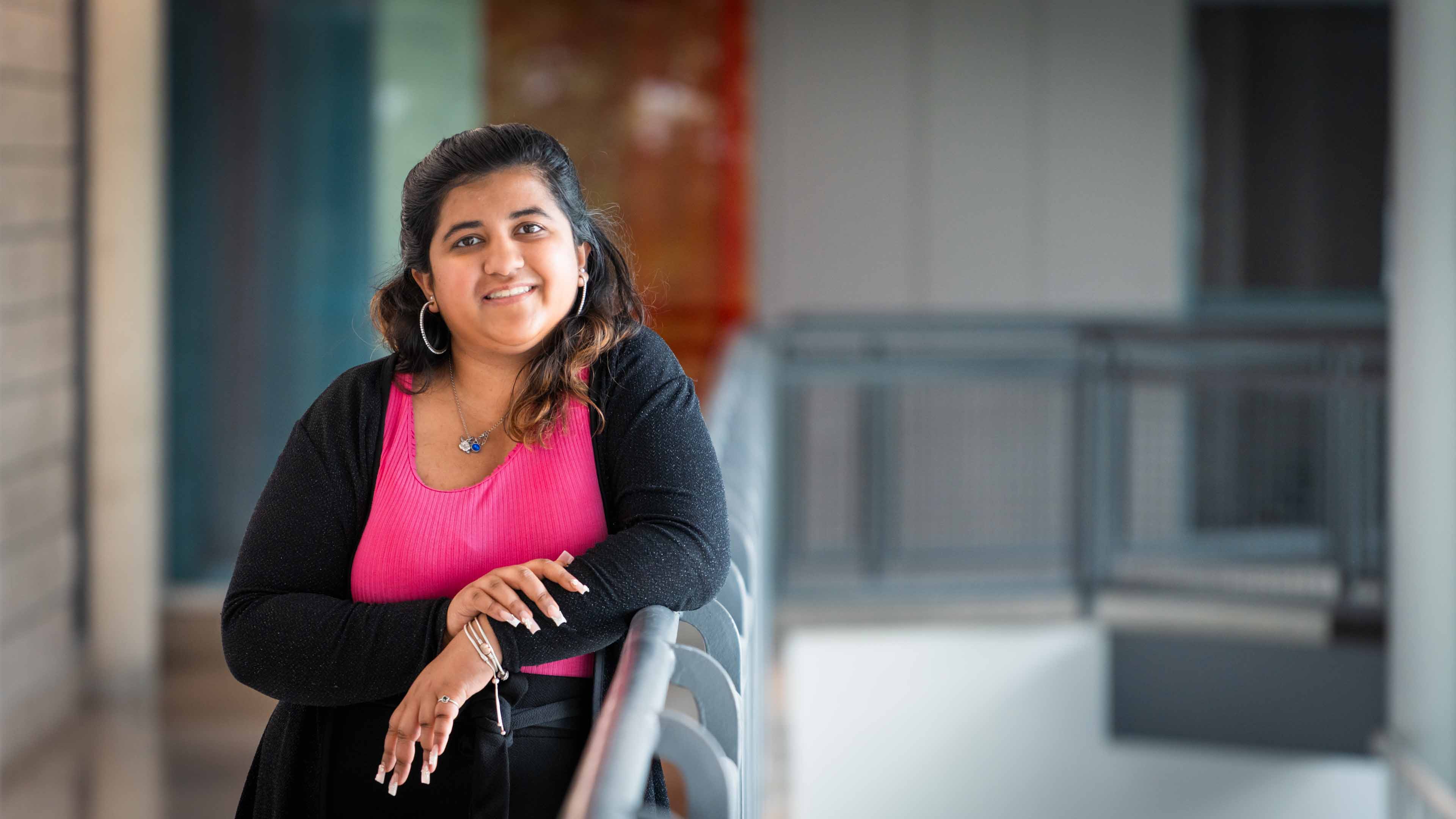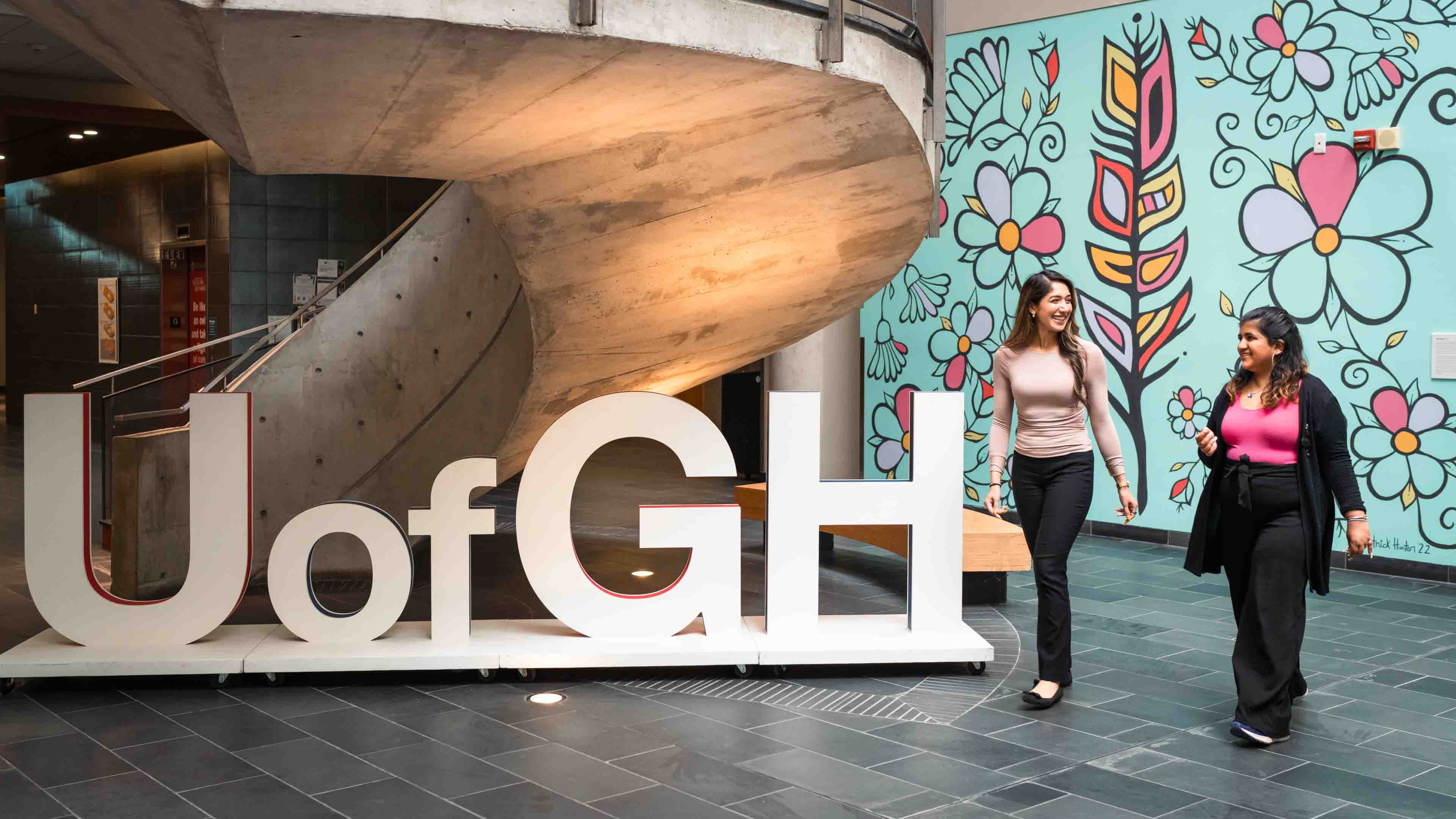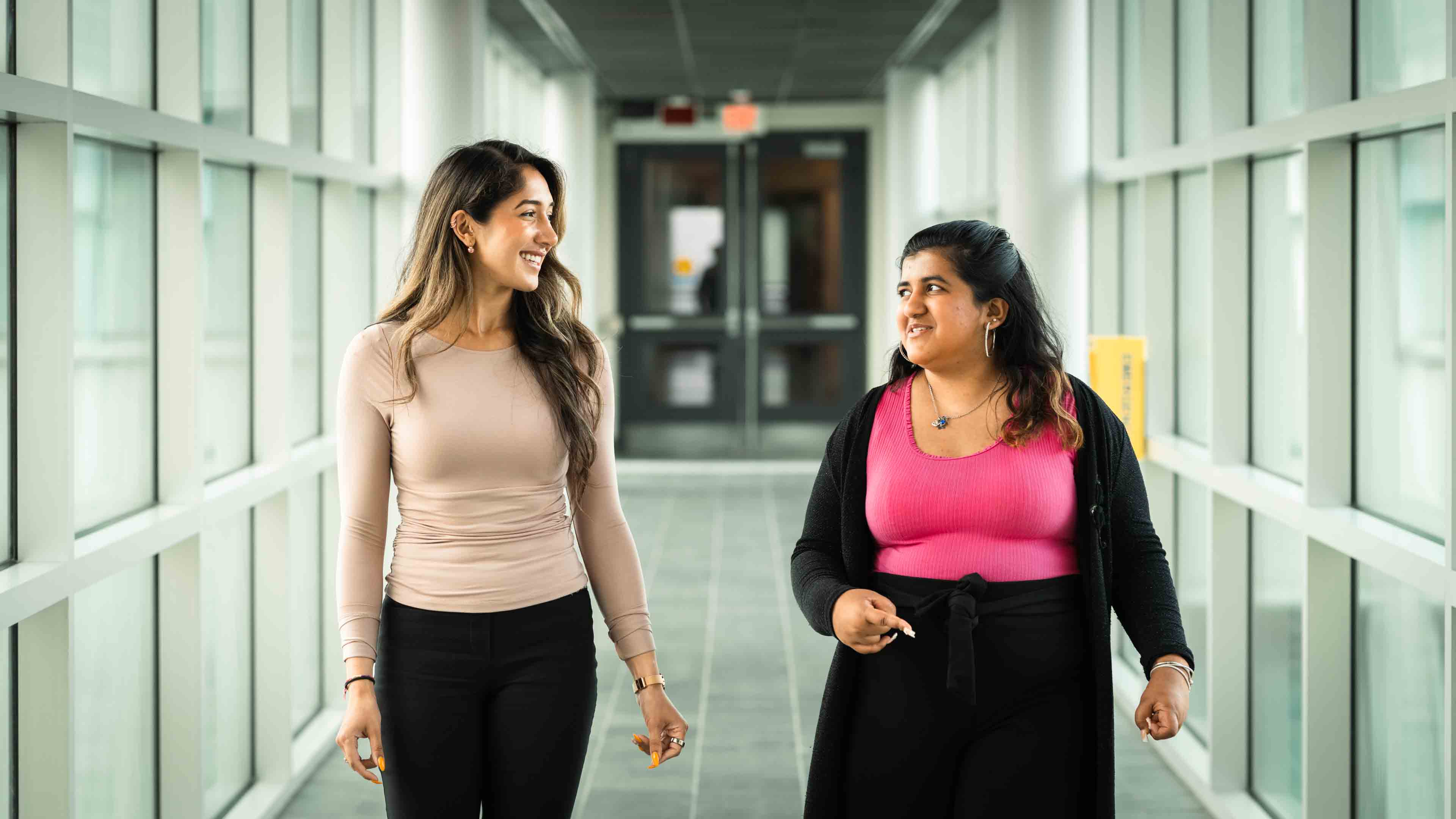Inspired by her own experiences with autism, she wants to use her ECS education to one day pursue teachers college

It only takes one teacher to make a difference in a child’s life. University of Guelph-Humber (U of GH) Early Childhood Studies (ECS) student Nandita Sarin aspires to be that teacher who’ll make a lasting impact on students’ lives one day, especially those who are neurodivergent.
As a person who’s neurodivergent herself, Nandita has navigated university with autism and obsessive–compulsive disorder (OCD), doing so with a great deal of tenacity and perseverance. Although she has faced hurdles on her journey, Nandita learned lessons from those challenges and uses her perspectives and past troubles as inspiration to fuel her ambition.
“I remember how it felt to be a child who struggled. That gives me the power and the drive to notice the ‘invisible’ kids and support them because there are always kids who feel left out,” Nandita said, who’s going into her final year of study at U of GH this fall. “I'm able to help them in different ways and I'm also able to think outside the box, which might be difficult for some other people.”
Nandita wasn’t diagnosed with autism until she was 15 because of a lack of early intervention, she explained. Throughout her childhood, she struggled silently, and often felt overwhelmed and misunderstood by her teachers and peers. Nandita said she never had an educator who saw her for who she truly was, they only saw her behaviours at a surface level. This is where her sense of purpose stems from – not wanting other neurodivergent children to share those same negative experiences. That’s why her goal is to enter teachers college and to perhaps pursue grad school after she leaves the ECS program with a degree from the University of Guelph and a diploma from Humber Polytechnic.

“Those lived experience made me see that I need to be that educator who makes a change, who's very empathetic, and lets children express themselves,” she said.
“That's why I wanted to apply for the Early Childhood Studies program, a place where I could turn this pain into a purpose, where I could learn to use the tools and be a strong ally for other children,” Nandita continued. It was when she started the ECS program that she finally felt like she truly belonged.
Living with autism means sometimes finding it difficult to understand social cues and over- or under-communicating, which can cause misunderstandings, she said. But being at Guelph-Humber taught her that “it’s not about being perfect; it’s about the progress you make.”
U of GH is where she learned to recognize her own behavioural patterns when she’s feeling stressed and to communicate with professors and staff when she’s feeling overwhelmed. Nandita also began recognizing what authentic relationships felt like through the connections she’s forged here. And she learned that when people require space, it doesn’t always mean rejection. Just trust the process; that’s what one of her mentors, ECS Chair Dr. Nikki Martyn (currently on leave), taught her.
Nandita found her support system at Guelph-Humber – people who helped guide her on her academic and personal journeys, as she learned these important lessons about relationships and her academics. U of GH is where grew as a person and as a student. She credits Dr. Martyn, Dr. Elena Merenda (Acting Chair, ECS), Amina Yousaf (Associate Head, ECS), Bianca Delicata (Program Support Coordinator, ECS), Christine Zupo (instructor, ECS), and Dr. Randa Khattar (instructor, ECS), and her academic advisors among her inspirations and confidants.

It's these lessons and lived experiences that give Nandita unique insights into working with neurodivergent children because she can understand and empathize with them. Since she lives with autism, she said that this helps her notice behaviours among children that others may miss or brush off, including patterns, emotions, and unspoken dynamics. In fact, as a student participating in placements, Nandita is already practicing leading with patience and empathy.
“I get to understand the child, what is really happening and making sure they feel safe and heard,” she said, adding that she’s also deeply empathetic and detail-oriented, even if others don’t initially notice because of her neurodivergence.
Though Nandita is excited about her bright future, she carries a quiet fear: that the meaningful connections she’s forged at U of GH might fade with time. Yet, with her inspirational spirit and determination to create change, it’s clear she won’t be forgotten anytime soon. In fact, Nandita is planning to spearhead an event for autism awareness during the 2025-2026 academic year so other ECS students can be better informed about the way children with autism learn differently. She’s also interested in creating an autism awareness group at Guelph-Humber that would serve as a community, open to all students, where participants could engage in discussions and advocacy work.
And to those students who are also charting their course through university with neurodivergence, Nandita believes they should “embrace their uniqueness.”
“Having a disability should not take away from your uniqueness. [Be sure to] advocate for yourself…Get involved and set realistic goals, but don’t be too hard on yourself,” Nandita said. “You’re not alone.”


